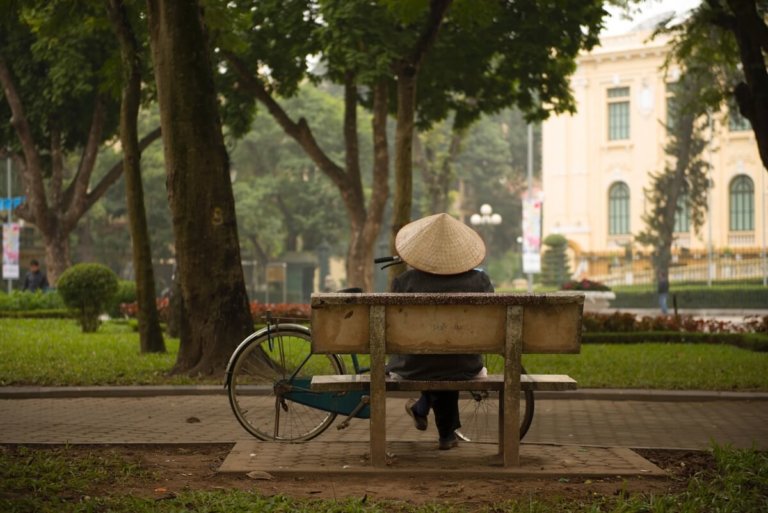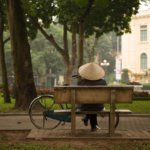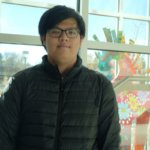The name Nguyen (pronounced “wen”) is very common in Vietnamese culture. In fact, it’s so prevalent that, according to the country’s Tuổi Trẻ newspaper, an estimated 40 percent of people in that country have that name. But for Colorado Academy senior Nguyen Pham, there is one difference: “Nguyen” is most often a surname and not a given name.
Pham says “Nguyen” means “integrity.” “Because I was the first born in the family, my grandpa was the one who chose the name for me, and not my parents.” Pham was also the first in his family born in the United States.
Sitting in a study room in CA’s Upper School, Pham remarks on the importance of understanding his family history. He begins his story with his parents. “My dad was born in ’75 and my mom was born in ’76,” he says. “She was born not long after the fall of Saigon.”
Saigon, now called Ho Chi Minh City, was the capital city of South Vietnam. It fell to the North on the last day of April in 1975, an event that would bring to an end a 20-year war characterized by chemical and guerilla warfare. Untangling his family history, including the complexities of the Vietnam War, has been a byproduct of Pham’s time at CA, where he says the classes and speakers have helped him to do just that.
“My grandfather fought for the South Vietnamese Army. His army rank was Thieu Ta, which translates to ‘Major,’” says Pham. “He was a telecommunications officer, and after the war, he was taken to the ‘re-education’ camps up North.” Like prison camps, re-education camps were home to prisoners who were forced to do manual labor.
It was speaker and author Andrew Lam who spoke at CA and who helped Pham learn more about the re-education camps. According to Pham, the author of Perfume Dreams: Reflections on the Vietnamese Diaspora, who spoke last year in the Upper School, “really helped me sort of start understanding more of what happened with my family in Vietnam,” and particularly what his grandfather’s experience might have been like in the re-education camp.
After returning home from the camps, Pham’s grandfather decided to relocate his family—including Pham’s mother—to the United States.
“And then my dad immigrated here in 1990. He stayed at a Philippines Refugee Processing Center before moving to the U.S. He said that it was like an ‘immigration layover.’ It had facilities such as schools, hospitals, and stores. He lived there for six months, and that’s where he started to learn English.”
Pham smiles to himself as he ponders how both his mother and father decided to relocate to—of all the states in the U.S.—Colorado, where they met in high school. “If they hadn’t both decided to move to Colorado, then I wouldn’t be here.”
Pham, who grew up speaking Vietnamese in his home, says that his CA studies have helped him to unravel the path that put him where he is today. A recent visit from SPEAK lecturer Phan Thi Kim Phuc in Dr. Mike Davis’s Vietnam War class left a particular impression on Pham. He says it brought the story of the war full circle when he got to meet her in person.
Phuc is the subject of the iconic photograph: a little girl, naked and crying, running on a road after a napalm bomb attack during the Vietnam War. “It was just such an important photograph, and it was such a great experience to meet her and hear what she had to say,” Pham says.
Today, Pham’s family owns Pho 4 U, a cheery Vietnamese restaurant at River Point in southwest Denver, serving up pho and other popular Vietnamese dishes. Pleased to be learning about the history that has shaped his family, Pham is also sad that he didn’t have more time with his grandfather who died in 2012. “I was just too young to ask him the right questions,” says Pham. Still, his grandfather’s legacy lives on through Pham’s name.
“At a young age, I was given the option of going by Vincent. I declined, because I liked Nguyen better. In retrospect, I think it was because I respected the name that my grandpa gave me,” Pham says.


